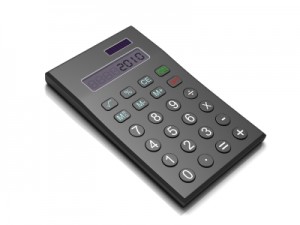The impact of calculators in maths teaching
Calculators have been in the news this week. Four years ago, the Year 6 SATs calculator was abolished. This week, an academic study has found that calculators make our children better mathematicians. You can read a summary of the Education Endowment Foundation’s findings here on the BBC website. For a more in-depth view, read the full report here.
Making Maths Count
It stands to reason that calculators help children improve understanding of maths. In a multi-step problem, there may be several complex calculations to make. A child can understand a question perfectly but get the answer wrong because of a simple mistake. The result is frustration and a feeling that maths is a chore.
One of the report authors, Prof Jeremy Hodgen, chairman of Mathematics Education at University College London, suggested that calculators were valuable in checking calculations are right. He also pointed out that, with calculators, pupils can tackle tricky numbers.
Prof Hodgen said: “Employers really value numeracy, but they don’t want people who can just recite their times tables, they want someone who can work out something in the real world.
“No-one in the real world would think of calculating 4,271.36 times 289.67 in their heads.
“But before they use a calculator they should know that the answer is about 1.2 million, so that if they get an answer which is about 123,000 they have made a mis-key error.”
This is absolutely correct. Calculators have a valid place in schools, but they must be used in a thoughtful and considered way. Calculator use is a skill which should be carefully taught.
Exploring Maths
It follows that if children are allowed to explore maths using calculators, they approach complex problems with confidence. They investigate patterns and journey further into maths than pen-and-paper calculations would allow. They see clear steps to a correct answer. The result is a deeper understanding and a willingness to take risks.
This takes us back to November 2012 when the BBC asked Better Tuition’s Co-Director, Christine McLaughlin to take a seat on their breakfast sofa. The purpose? To discuss the governments’s plans to remove the calculator paper from Key Stage 2 SATs.
You can read more of our thoughts on the efficacy of calculators in teaching maths here on our blog.
Lastly, if your child needs help with any area of maths, from reception to GCSE level, call Paul or Christine on 0161 748 312 and find out today how we can help.


